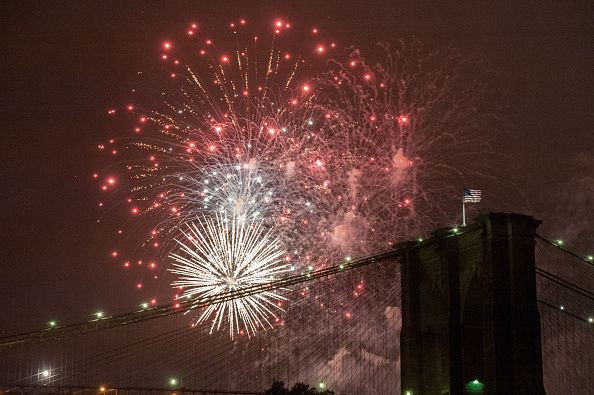Fireworks Recalled After Unexpected Explosions and Burn Injury Reports

A brand of fireworks was recalled last week due to unexpected explosions after being lit, according to Gizmodo Monday. The brand “TNT Red, White, Blue Smoke fireworks” was recalled on June 27, 2017 by the Consumer Product Safety Commission. With the Fourth of July fast approaching, sales of fireworks have increased.
Under the reason for recalling, the commission wrote, “The fireworks can explode unexpectedly after being lit, posing burn and injury hazards to customers.” The manufacturing company American Promotional Events received three incident reports regarding burn injuries and recalled 36,100 units.
Read: Fourth Of July Fireworks: Why New Jersey May Not Be Any Fun In 2017
"The Blue Ammo Smoke effect could rapidly dispel from the bottom of the tube in an explosive manner posing a burn hazard," American Promotional Events of Florence, Alabama said.
The fireworks are only meant to release colored smoke, not explode. They were sold in four states from May to June 2017.
According to the 2015 Annual Fireworks Report by the Consumer Product Safety Commission, 7.4 fireworks-related deaths were reported annually in previous years.
The report also stated, “An estimated 8,000 fireworks-related injuries (or 67 percent of the total estimated fireworks-related injuries in 2015) were treated in U.S. hospital emergency departments during the 1-month special study period between June 19, 2015 and July 19, 2015.”
Read: 4th Of July NYC 2017: Independence Day Guide To Concerts, Cruises And Fireworks
The CPSC also reported that on average of 250 people go to the emergency room each day with fireworks-related injuries around the Fourth of July. In 2016, the CPSC reported four fireworks-related deaths.
According to the American Pyrotechnics Association, the total amount of fireworks used rose exponentially from 29 million pounds in 1986 to 268.4 million in 2016. However, fireworks-related injuries have declined, and the rate of fireworks-related injuries was almost 43 percent lower in 2016 than in 2000.
Due to all of the risks associated with fireworks, the CPSC listed a series of precautions to follow when handling them. Fireworks have been made illegal in many states, so before buying fireworks, consumers should check to make sure they are legal in their area.
© Copyright IBTimes 2025. All rights reserved.





















